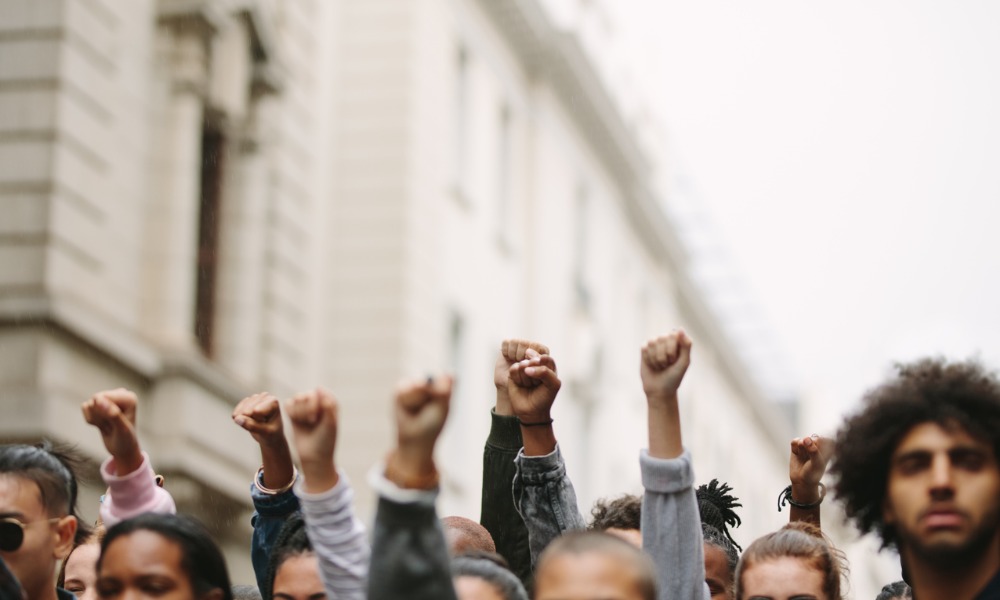
'The program is outfitted with guardrails that limit disincentives to return to work,' says chamber of commerce

One union and the world’s largest business organization are on opposing sides when it comes to a recently introduced bill in California that extends unemployment insurance (UI) benefits to workers who go on strike.
Introduced by State Sen. Anthony Portantino (D-La Cañada Flintridge), amendments to Senate Bill 799 would extend the eligibility for unemployment compensation benefits and extended benefits to workers who go on strike for an extended period of time.
Under the current law, an individual is not eligible for unemployment compensation benefits if the individual left work because of a trade dispute, other than a lockout in the workplace.
With the changes to SB 799, however, the ineligibility of an individual to receive these benefits shall expire after the first two weeks of the trade dispute.
“This section shall not diminish the eligibility of individuals who were deprived of work as a result of an employer lockout or similar action under the principles set out in Coast Packing Co. v. California Unemployment Ins. Appeals Bd. (1966) 64 Cal.2d 76,” read part of the bill.
The proposal struck out the text relating to visitation rights of prison inmates under the bill to deal entirely with unemployment benefits for striking workers.
“Even coming out of the strike, when folks eventually get a contract that they agree on, their families have suffered during this time,” Portantino said in the Los Angeles Times.
The Writers Guild of America West (WGA) welcomed the new proposal, saying it would be a big help for striking workers in their dispute with employers.
“Our union members have been on strike for 122 days,” said Meredith Stiehm, president of the group. “We are in an existential fight for our profession against the powerful studio management for months without work is emotionally brutal, and financially disastrous. The companies of course know this and have preyed upon our members’ economic insecurity and personal anxieties.”
Stiehm also shared how one studio executive told a reporter that the company's “endgame” is to allow things to drag on “until union members start losing their apartments and losing their houses”.
She also pointed out that UI for striking workers is the law in New York and in New Jersey, and this has helped WGA members in the East: “It's time for California to catch up and meet the demands of the time,” she said.
Recently, the Service Employees International Union (SEIU) Local 1000, California’s largest union of public employees, has reached a tentative deal with the state government.
On the other hand, the U.S. Chamber of Commerce sees no reason to do away with the existing rules on UI in California.
“The exclusion of benefits for workers on strike is the standard across much of the nation and based on UI’s basic function to provide a temporary safety net for Americans who are suddenly without work,” said Stephanie Ferguson, director for Global Employment Policy & Special Initiatives, at the business organization.
“The program is outfitted with guardrails that limit disincentives to return to work. In most cases, claimants who refuse suitable work are deemed ineligible for benefits. This requirement has been the precedent for decades and is a commonsense approach, especially amid a prolonged worker shortage.”
Ferguson also questioned the state’s motivation for pushing for the change in SB799.
“The motives behind California’s attempted departure from the basic principles of UI eligibility are obvious: Capitalize on the ongoing strikes and appeal to the unions.”
She said that workers who go on strike choose to make the “financial sacrifice” in exchange for “bargaining leverage”.
“Unions typically supplement the lost wages to strikers via payments financed from a member-funded strike fund. If workers collect UI while striking, contributions to the strike fund could be redirected for other purposes.
“Meanwhile, businesses will experience higher taxes to make up for payments from the UI fund. In essence, employers will be forced to pay for workers to strike, which rather tilts the balance in labor law in one direction.”
Recently, the National Labor Relations Board (NLRB) adopted a new framework stating that, when a union requests recognition – with a majority of employees in an appropriate bargaining unit having designated the union as their representative – an employer must either recognize and bargain with the union or promptly file an RM petition seeking an election.